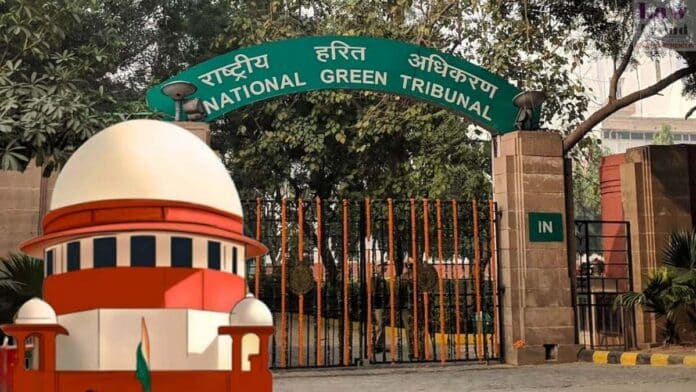The Supreme Court on Monday set aside orders of the National Green Tribunal (NGT) imposing a ₹18 crore environmental compensation on M/s Triveni Engineering and Industries Ltd for alleged violations at its Khatauli-based sugar mill in Uttar Pradesh. The top court held that the NGT had acted contrary to statutory procedures and violated principles of natural justice.
A bench of Justices Manoj Misra and Ujjal Bhuyan allowed the company’s appeals and quashed two NGT orders dated February 15 and September 16, 2022. Writing the judgment, Justice Ujjal Bhuyan criticised the manner in which the green tribunal acted, remarking, “In the quest for doing justice, NGT has ended up doing just the reverse.”
The Supreme Court found that the NGT constituted an ad hoc joint committee to inspect the sugar mill’s compliance with pollution norms and effluent discharge without following the mandatory procedure under Sections 21 and 22 of the Water (Prevention and Control of Pollution) Act, 1974.
The report prepared by the committee was accepted without adjudication, and the company was not given an opportunity to contest its findings. The court also noted that the NGT failed to implead the company as a party to the proceedings, despite the fact that the case was directed against it.
“It is crystal clear that the impugned decisions which entail adverse civil consequences upon the appellant were passed without following the due procedure laid down under the statute as well as the elementary principles of natural justice. We, therefore, have no hesitation in declaring such orders to be illegal and null and void,” the bench held.
The verdict observed that environmental compensation had been imposed “without any adjudication and without granting any opportunity of hearing” to the appellant. The committee report, which formed the basis of the NGT’s decision, did not confirm adherence to statutory procedure.
The court underlined that the NGT, being a judicial forum, was bound to adhere to a fair process, calling principles of natural justice an “inalienable part” of its functioning.
While setting aside the penalty, the bench clarified that the Uttar Pradesh Pollution Control Board (UPPCB) remained free to conduct inspections of the sugar mill and take remedial measures, if necessary, in accordance with law.
The case originated from a plea filed before the NGT by one Chandra Shekhar, who alleged that Triveni Engineering’s Khatauli sugar mill was discharging untreated effluents into local drains, leading to groundwater contamination up to 50 metres deep within a 1.5-kilometre radius.
Acting on the plea, the NGT formed a joint committee comprising representatives of the Central Pollution Control Board (CPCB), the UPPCB, and the District Magistrate, Muzaffarnagar. Inspections in December 2021 reportedly found multiple lapses, leading to the imposition of the ₹18 crore compensation.




